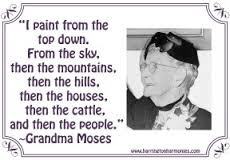I read “The Better
Angels of Our Nature: The Decline of Violence in History and Its
Causes” and then read several reviews of it.
The most serious
flaw in the book is the author's assertion that human action is the
resultant of forces. He calls these forces “endogenous” and
“exogenous,” which is another way of saying of nature and nurture
or heredity and environment or wiring and programming. Another way of
stating it, even more abstractly, is to say that human action is a
dependent variable that is predictable from an independent variable.
This basic scheme can be elaborated by multivariate analysis and
weighting of factors, but it's still the attempt to predict human
action. The book's numerous linear graphs all display two variables.
But the
characteristically human thing is to insert a process of reflection
in between the x and the y, during which the human contemplates alternative courses of action, sometimes over a very long period of
time, and then chooses or constructs one which he or she may change after further
reflection or new developments. This reflection process introduces
historicity and futurity into our lives which would be impossible or
uneconomical or unnecessary if our actions were just the playing out
of forces. It also introduces intentionality, agency, agony, and alterity -
phenomena that we all see directly, commonly, but which only
academics deny – deny for non-academics, but not for themselves.
Which brings me to
the second serious flaw - an inadequate account of what the author
variously calls sympathy, empathy and perspective-taking. He devotes
a lot of words to the subject and is aware that this is an area of the
most persistent objections to the “forces” scheme. The author
tries to deal with this and spends a lot of words on the subject
which never really satisfy me or him. For example, he says that we
get perspective by imagining the other's point of view. He is very
careful with his words on that point – that we “imagine” the
other's point of view. But this theory involves the epistemological
or metaphysical problem of “solipsism,” or the "homunculus argument." The “looking glass
self” as well as social darwinism, which he posits, are
still very popular but careful thinkers saw through them a hundred
years ago or more. He is far from any understanding that people are able to be in two places at once, as in quantum theory.
I was not able to
find any mention in this discussion of what is loosely called
“projection.” I refer to the idea that humans who refuse to
acknowledge their own faults “project” or attribute those
particular faults to others. The Freudians called it a defense
mechanism and seem not to have accounted for it very acceptably, but
I think there is no question that the observation is of something
real and common. The existing theories of “projection” may not be very
satisfying, or may be very complicated, but I think our common
experience is that what gets people really angry and violent towards
you is not really you, but something about themselves which they are
trying to repress and which your reality elicits within themselves.
All the bad stuff within the self is denied, repressed and then
projected onto the enemy, thus justifying various forms of violence.
I write “various forms of violence” here and reflect that I was
not able to find any attempt to define “violence” in this book
subtitled “The Decline of Violence and It's Causes.” I looked
carefully for a definition of violence, given the scientificky
smoke, but just could not find it. But then I found the author writing on his website that he quite deliberately does not define violence. An explicit, careful definition is quite
consequential to Pinker's thesis about the decline of violence if you
consider, as I do, what the supporters of the bankers and financiers and the 1%
have done to us over the last decade or four, to be a form of
violence. So Pinker simply and deliberately refuses even to try to define it, sensing that if he did so, it would completely destroy his worldview, his thesis, his book, his reputation, and his comfortable, well-paying, respectable job.
There is one more
thing that comes to my mind right now and that is the author's
unrestrained use of metaphor and simile. He refers in the title
itself to “angels,” but you can see right away that he has no
belief nor interest whatsoever in anything remotely like angels. He
is clearly aware of the misuse of metaphor, as when he
refers in quotes a few times to “hydraulic” theories such as of
the flow of libido in classic Freudian psychoanalysis. But he himself
is constantly doing it. Anyone who is truly serious about
understanding humanity and who has seen how easily a mistaken
metaphor can invalidate a sophisticated, highly-elaborated-over-many-years social theory, becomes extremely careful and
reluctant about using metaphors. The subtle misuse of one metaphor can destroy an academic's entire life work. Attributing agency to genes,
evolution, the system, culture, tradition, instincts, attitudes,
needs, drives, forces, history, brains, time, space – a million other "factors" - can do that, too, so you become extremely careful
about it. I think now of how Talcott Parsons, another Harvardian, and
his acolytes spent so many years and so many words and so many
people's lives and funds on positing “system prerequisites” as
causing people's actions, and of how B. F. Skinner, another
Harvardian, and his acolytes posited there being no such thing as
thought or choice or selfhood or dignity, just conditioning.
My own view is that
the a depiction of the reality of this book, and of the reality of
social sciences in the academy, would require a fiction/fantasy
author of the highest ability.













